Introduction to Frontend Development
Welcome to the exciting world of frontend development! In today’s digital age, where user experience reigns supreme, frontend developers play a crucial role in creating visually captivating and seamless websites. From crafting eye-catching designs to ensuring smooth functionality, these skilled professionals are in high demand across industries.
If you’ve been considering a tech career or are already taking your first steps into this field, finding a frontend development job can open up endless opportunities. Whether you’re an aspiring developer or an experienced professional looking for new challenges, this blog post will provide valuable insights and strategies to land that dream job.
So grab your coding tools and get ready to dive into the world of frontend development job hunting. From essential skills employers seek out to networking tips and top companies hiring developers like you, we’ve got you covered. Let’s embark on this journey together and pave the way towards a successful frontend developer career!
The Importance of Frontend Development in Today’s Job Market
In today’s job market, the importance of frontend development cannot be overstated. With the rapid technological advancements and the increasing demand for user-friendly websites and applications, businesses are constantly seeking skilled frontend developers to create seamless digital experiences.
Frontend development shapes a user’s first impression of a website or application. A well-designed and intuitive interface can make all the difference in attracting potential customers and keeping them engaged. This is why companies place such high value on talented frontend developers who can bring designs to life with clean code and captivating visuals.
Moreover, as more businesses shift their operations online, having a strong online presence has become essential for success. Frontend developers are responsible for creating responsive designs that adapt to different devices and screen sizes, ensuring users can access content easily from desktops, tablets, or smartphones.
Additionally, frontend development is closely tied to search engine optimization (SEO). By implementing SEO best practices into their coding techniques, frontend developers can help improve a website’s visibility on search engines like Google. This ultimately drives organic traffic and increases brand exposure.
Furthermore, with mobile usage on the rise globally, optimizing websites for mobile responsiveness has become imperative. Companies need frontend developers who understand how to create fluid layouts that provide an optimal experience across all devices.
In conclusion (as per your instructions), given its impact on user experience and overall business success in today’s digital age, it is clear that frontend development holds immense importance in the job market. As technology continues to evolve rapidly, so will the demand for skilled frontend developers who possess both technical expertise and creative flair.
Essential Skills for a Frontend Developer
As a frontend developer, there are several essential skills you need to master to excel in your job. These skills go beyond just coding and require a combination of technical proficiency and creative problem-solving abilities.
First and foremost, you need to have a strong understanding of HTML, CSS, and JavaScript. These three languages form the foundation of frontend development and are used extensively in creating websites and web applications. It would be best if you were comfortable writing clean, semantic HTML code, styling it with CSS, and adding interactivity using JavaScript.
In addition to these core languages, knowledge of responsive design is crucial. With the increasing popularity of mobile devices, it’s vital that websites can adapt seamlessly to different screen sizes. Media queries and flexible layouts will ensure your designs look great on all devices.
Another important skill for frontend developers is familiarity with version control systems like Git. Effectively collaborating with other developers by tracking changes and resolving conflicts is essential when working on larger projects.
Furthermore, having an eye for design can set you apart as a frontend developer. While only some developers need to be graphic designers or UX experts, understanding aesthetics and usability can greatly enhance the user experience of your creations.
Staying up-to-date with industry trends is crucial in this fast-paced field. New frameworks and tools emerge regularly; being adaptable and willing to learn new technologies will keep you relevant as a frontend developer.
These are just some essential skills required for success in frontend development. By continuously honing your technical abilities while also nurturing your creativity and adaptability,
you’ll be an invaluable asset in today’s competitive job market!
Building Your Portfolio and Resume as a Frontend Developer
Building a strong portfolio and resume is crucial for landing a frontend development job. It’s about showcasing your skills and demonstrating your ability to create visually appealing and user-friendly websites or applications.
First and foremost, include your best projects in your portfolio. Choose ones that highlight different aspects of frontend development, such as responsive design, interactivity, and accessibility. Be selective and showcase the variety of technologies you have experience with.
When presenting each project in your portfolio, please briefly explain its purpose, the challenges you faced during development, and the solutions you implemented. Include screenshots or links to live demos so potential employers can see firsthand what you’ve accomplished.
Additionally, consider creating blog posts or case studies that delve deeper into some of your projects. This shows that you possess technical skills and can think critically about design decisions and problem-solving.
In terms of your resume, focus on highlighting relevant frontend development experience such as languages (HTML/CSS/JavaScript), frameworks (React/Angular/Vue), version control systems (Git), etc. Tailor it specifically for each job application by emphasizing the skills mentioned in the job posting.
It’s also important to mention any certifications or courses you have completed related to frontend development. These demonstrate your commitment to continually learning and improving your skills in this fast-paced field.
Remember to include links to GitHub repositories or other code-sharing platforms where employers can view code snippets from past projects. This gives them further insight into how you write clean and efficient code.
Building an impressive portfolio takes time and effort; it’s an ongoing process as technology evolves rapidly. Continually update it with new projects while removing outdated ones so potential employers can clearly understand your current frontend developer abilities.

Networking and Job Searching Strategies for Frontend Developers
Finding a frontend development job can be an exciting but challenging task. One of the most effective ways to land your dream job is through networking. Building connections within the industry can open doors to new opportunities and help you gain valuable insights from experienced professionals.
Start by attending local meetups, conferences, or workshops focused on web development. These events provide a platform for like-minded individuals to connect and share their knowledge. Feel free to strike up conversations with fellow developers and ask them about their experiences in the field.
Another great way to expand your network is through online communities such as LinkedIn, Twitter, or GitHub. Join relevant groups, participate in discussions, and showcase your work by sharing your projects or contributing to open-source repositories.
In addition to networking, it’s crucial to utilize various job-searching strategies. Start by creating an impressive online portfolio that showcases your skills and projects. This will serve as a visual representation of your abilities for potential employers.
Search for frontend development job postings on popular platforms like Indeed or Glassdoor to increase visibility. Tailor your resume according to each specific position you apply for, highlighting relevant skills and experiences that match the required qualifications.
Consider contacting companies you’re interested in working for, even if they don’t have any current openings listed. Expressing genuine interest in their organization may lead them to consider you when future opportunities arise.
Remember to underestimate the power of referrals. Let friends, family members, former colleagues or professors know you seek employment in frontend development roles. They might have connections or insider knowledge about hidden job opportunities that could benefit you greatly!
Remember that finding a frontend development job requires persistence and dedication. You’ll increase your chances of landing the perfect opportunity by utilizing effective networking strategies alongside targeted job-searching techniques!
Common Interview Questions for Frontend Development Jobs
When landing a frontend development job, being prepared for the interview is key. To help you, we’ve compiled a list of common interview questions you may encounter during your job search.
One query often asks: “Can you explain the difference between HTML and CSS?” This allows employers to gauge your know-how of these essential languages utilized in web development.
Another commonly asked question is: “How do you handle browser compatibility issues?” Employers want to ensure you have the skills to address cross-browser inconsistencies and provide solutions.
Additionally, be prepared to answer questions about responsive design techniques. Employers want to know how adeptly you can create websites that adapt seamlessly across different screen sizes and devices.
Furthermore, expect inquiries about JavaScript frameworks such as React or AngularJS. Hiring managers want to determine if your knowledge extends beyond basic JavaScript concepts.
Don’t forget about questions regarding accessibility standards and best practices. Companies value developers who prioritize making their websites inclusive for all users.
By familiarizing yourself with these common interview questions, you’ll be better equipped to impress potential employers and stand out from other candidates vying for frontend development positions. Be confident in showcasing your skills and experience while demonstrating a passion for creating exceptional user experiences on the web!
Top Companies Hiring Frontend Developers and Their Requirements
When finding a frontend development job, knowing which companies are hiring can give you a competitive edge. Here are some top companies that are actively seeking talented frontend developers:
1. Google: As one of the tech giants, Google is always on the lookout for skilled frontend developers who have expertise in languages like HTML, CSS, and JavaScript. They value strong problem-solving skills and experience with responsive design.
2. Facebook: Another major player in the industry, Facebook seeks frontend developers who can create visually appealing and user-friendly interfaces. Proficiency in React.js or AngularJS is often required, along with knowledge of RESTful APIs.
3. Apple: Known for their sleek designs, Apple looks for frontend developers who excel at creating seamless user experiences across various devices. Experience with Swift or Objective-C is highly desirable.
4. Amazon: With its vast e-commerce platform, Amazon needs frontend developers who can deliver fast-loading websites and optimize performance. Knowledge of frontend frameworks like Vue.js or Ember.js is often preferred.
5. Microsoft: As a leading software company, Microsoft values frontend developers who can build accessible and scalable web applications using technologies like TypeScript or ASP.
NET MVC.
These companies typically require a bachelor’s degree in computer science or related fields and relevant work experience. Additionally, having a strong portfolio showcasing your previous projects will greatly enhance your chances of getting noticed by these top employers.
Remember that while landing a job at one of these prestigious companies may be challenging due to fierce competition, staying up-to-date with the latest trends and continuously improving your skills will increase your chances significantly!
Remote Work Opportunities for Frontend Developers
In today’s digital age, remote work has become more widespread. This shift in how we work has opened up a world of opportunities for frontend developers who wish to work from the comfort of their homes or anywhere they choose.
One of the main advantages of remote work is flexibility. As a frontend developer, you can set your schedule and have control over how you manage your time. This allows you to achieve a better work-life balance and eliminates the need to commute to an office daily.
Another benefit of remote work is access to global job opportunities. When you’re not restricted by location, you can apply for positions with companies worldwide. As a frontend developer, you have endless possibilities for finding freelance projects or full-time remote positions.
Working remotely also provides an opportunity to collaborate with diverse teams. With advancements in technology and communication tools, connecting with colleagues across different time zones and cultures is easier than ever. This exposure can broaden your frontend developer horizons and enhance your problem-solving skills.
Additionally, working remotely often leads to increased productivity. Without distractions commonly found in traditional office environments, such as constant interruptions or long meetings, developers can focus on their tasks without unnecessary disruptions.
However, it’s important to note that working remotely requires self-discipline and effective communication skills. As a remote frontend developer, you must manage your time efficiently and communicate effectively with team members who may be located miles away.
The rise of remote work has created exciting opportunities for frontend developers seeking freedom and flexibility in their careers. Aspiring developers can thrive in this new era of virtual collaboration by embracing this trend and honing relevant skills like effective communication and self-motivation.

Salary Expectations for Frontend Development Jobs
One of the most important aspects to consider when looking for a frontend development job is the salary you can expect. The good news is that frontend developers are in high demand, and their salaries reflect this demand.
The average salary for a frontend developer varies depending on location, experience, and company size. In general, however, you can expect to earn a competitive salary as a frontend developer.
It’s worth noting that additional factors, such as benefits packages and bonuses, can also contribute to your overall compensation package. Some companies offer perks like flexible schedules, remote work options, health insurance coverage, retirement plans, and paid time off.
When considering salary expectations for frontend development jobs:
1. Research: Look into industry averages specific to your location and experience level.
2. Consider Your Skills: Specialized skills such as React.js or AngularJS could increase salaries.
3. Factor in Experience: Entry-level positions may offer lower pay initially but provide growth opportunities.
4. Weigh Company Culture and Perks: Evaluate non-monetary benefits potential employers offer.
5. Negotiate with Confidence: Be prepared to negotiate your starting salary based on market research and personal value.
In conclusion,
Frontend development is an exciting field with ample job opportunities available across industries worldwide. By acquiring essential skills through practical projects and building an impressive portfolio/resume while networking effectively within the community – aspiring professionals will be well-prepared to secure rewarding employment in this ever-growing domain!
Finding a frontend development job requires dedication and perseverance but ultimately offers great professional and financial rewards. So don’t hesitate to take the leap and embark on a fulfilling

